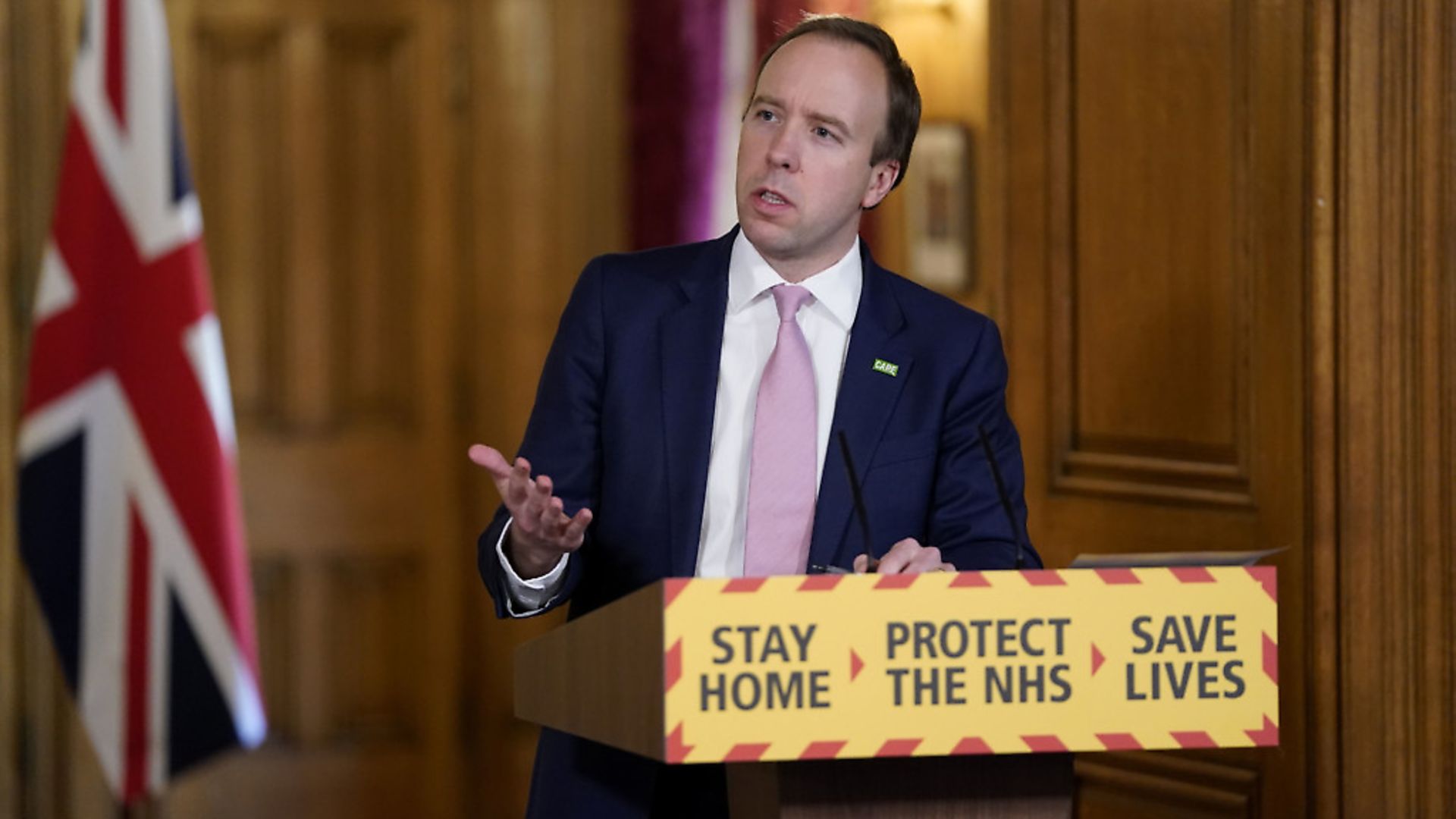
There is an undeniable pressure not to undermine the government’s response to the coronavirus. But LIZ GERARD argues we have a duty to question it.
We are not at war. We cannot defeat the ‘enemy’ with grit or determination or by ‘fighting’ (and certainly not on the beaches). Walls do not have ears. This invader has no spies; it cannot read our plans to beat it or change its strategy accordingly. There is no patriotic requirement to ‘get behind the government’ and no reason not to challenge its handling of this crisis. Indeed, there is a moral duty to question it at every turn, to make sure the best decisions are being made.
It is not careless talk that could cost lives, but silent acquiescence. Yet at briefing after briefing, ministers are insisting ‘now is not the time’ to ask awkward questions. When Keir Starmer commented that it was insulting to imply that NHS staff were wasting precious protective clothing, senior Tory Damian Green retorted that it was ‘not the time’ for point-scoring.
So the leader of the opposition is out of order in calling out the health secretary? It’s his job. A little while later, Tory MP Lucy Allan tweeted that we should ‘park the criticism’ because public health bodies were ‘doing their best’ and NHS procurement was clunky. Again, now was not the time.
Should we just accept that procurement is ‘clunky’ and shrug that off – or see what can be done about improving it?
Journalists and politicians of all stripes have a duty to push hard: why have promises made long ago still not been kept? Where are those thousands of ventilators that Michael Gove promised on April 4 would start arriving at hospitals ‘next week’? Why is testing still so sporadic, in spite of almost daily promises to ‘ramp it up’? Why does the Department of Health keep moving the goalposts for its daily updates, so that it is well nigh impossible to compare one day’s figures with the next? How can we judge our infection and fatality rates against other countries when we don’t test as much, when some include deaths in the community while we log only those in hospitals?
And why, why, why, are people only just waking up to the nightmare of what’s happening in care homes? Why are their staff having to beg for PPE?
We have allowed a complacent government to set the agenda of what is up for discussion and too many journalists and politicians have just fallen into step. The country is ‘backing Boris’; we’re all glad that he’s on the mend. But did his emergence from intensive care make it a ‘Good’ Friday, as the Sun proclaimed on its front page, when on that very day our 24-hour death toll exceeded the worst recorded by either Italy or Spain?
Asking difficult questions about the ongoing strategy is not carping. It is essential. There’s no point, now, in saying ‘Shouldn’t you have been better prepared?’ ‘Why did Cheltenham go ahead?’ ‘Should we have gone into lockdown earlier?’ Those are the questions we have to leave for another day. It’s not hindsight we need now, but foresight.
Have your say
Send your letters for publication to The New European by emailing letters@theneweuropean.co.uk and pick up an edition each Thursday for more comment and analysis. Find your nearest stockist here or subscribe to a print or digital edition for just £13. You can also join our readers' Facebook group to keep the discussion and debate going with thousands of fellow pro-Europeans.
We need chapter and verse on procurement of every piece of equipment, frank and clear explanations of ‘the science’, and an honest appraisal of where we think this contagion is going. If we are ‘approaching the peak’ and expect to start to loosen restrictions next month, then why all those pop-up hospitals (and morgues) at exhibition centres, stadiums, airports and arenas? They aren’t being converted without reason.
How is the £330 billion promised by the chancellor being distributed? Is it reaching people? How much has been paid out? What do casual workers do if their jobs have disappeared, they don’t qualify for furlough and are not rescued by the self-employed safety net? As new applicants for Universal Credit, how long must they wait for cash to put food on the table?
Imagine a house is on fire with a family trapped inside. Firefighters are trying to tackle the blaze, but people watching from the street cry: ‘There’s no water coming out of the hose…’
‘Tell me about it,’ says the fireman on the tender. ‘My team is doing its best, trying to save the family, but they’re dying in there.’
One bystander rushes to the town hall and asks to see the fire commissioner. ‘Why don’t you turn on the taps? Why don’t you give the firefighters breathing apparatus?’
‘Now is not the time for such questions,’ says the commissioner. ‘There will be water and breathing apparatus next week. We’re buying lots from all over the place. We’ll do whatever it takes.’
‘But those people are dying now. You must act now.’
‘Yes it’s sad, some will lose loved ones, but we will win this fight. I’m sorry if you feel we’re not doing enough, but now is not the time to carp and complain.’
Well yes it is. Those with the unenviable task of dealing with this national emergency doubtless believe they’re doing ‘whatever it takes’. But we must still ask hard questions now – just to make sure – while lives can be saved. Rather than at inquests and public inquiries in years to come.
Now is the time.











